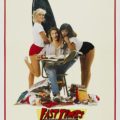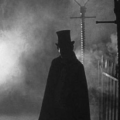
When you think of horror movies what’s the first thing you think of? Women screaming at the top of their lungs? Amazing practical effects? How do they keep shitting out so many of the same movie every few years? All valid observations. As a fan of horror myself, I tend to pick up on the little things here and there and what people who are not necessarily fans of the genre think these movies actually are. For as long as horror has been around, critics like to throw around the criticism that horror movies objectify or emphasize violence against women. That its always the strong hero that saves the day from the boogey man. This however is simply not the case.
There is a trope in horror, particularly more so in slasher films, called the “final girl”. Stop and really think about movies like Halloween, Friday the 13th, and Alien. Have you noticed that in each of these original movies the lone survivor is a woman? From Laurie Strode in Halloween to Ellen Ripley in Alien, they are the ones to outlive their friends and put up a fight against their respective villains. This is among one of the most common tropes in horror and is even a huge part of the plot in 2011’s Cabin in the Woods. I’d argue that horror is the one genre in film that empowers women the most. The final girls are smart, on their feet, and push past their fears to survive and put an end to the terror they’re facing. So the next time you hear someone say that horror only objectifies women, you know your mind that its simply not true and quite the opposite, in fact.








I see where you’re coming from, and while I agree that the “final girl” trope often presents women as strong survivors, I think it’s worth noting that the genre can be a bit more complex. Yes, characters like Laurie Strode and Ellen Ripley are iconic for their strength and resilience, but let’s not forget that their survival often relies on being the last one left after a series of brutal killings, which sometimes have elements of objectification and violence. Horror movies definitely have moments of empowerment, but it’s a genre that has potential for growth in how it represents women.
To say that the case of horror films doesn’t objectify women just because of one trope isn’t a strong claim. I think this idea of objectifying women goes beyond horror films where most will use a pretty girl just for the audience; Scream is actually a horror film that pokes fun at this idea where they show women being objectified by audiences through film, and how the filmmakers are completely aware of how it draws attention. Just because some “final girl” exists in some movies, doesn’t mean that women aren’t used, because there’s unfortunately more evidence to show that they aren’t. More recent films have stayed cautious about this though, and feminist activism in film has been able to help make this not the case so often so feminist art is often praised for this now hopefully becoming less of a “trope” and more of a standard for media.
While the final girl trope doesn’t tend to objectify women, the trope can still be harmful to women. Some common characteristics of the “final girl” are smart, pure, both virginal and in drug and alcohol usage, and somewhat tomboy-ish. All of these characteristics are the opposite of the women that tend to get objectified, stating that the way to survive these scenarios is to not be “feminine”. This isn’t to say that we shouldn’t celebrate the strong women that are final girls, but maybe be more conscious of what we’re watching.
While the final girl trope doesn’t tend to objectify women, the trope can still be harmful to women. Some common characteristics of the “final girl” are smart, pure, both virginal and in drug and alcohol usage, and somewhat tomboy-ish. All of these characteristics are the opposite of the women that tend to get objectified, basically stating that the way to survive these scenarios is to not be “feminine”. This isn’t to say that we shouldn’t celebrate the strong women that are final girls, but maybe be more conscious of what we’re watching.